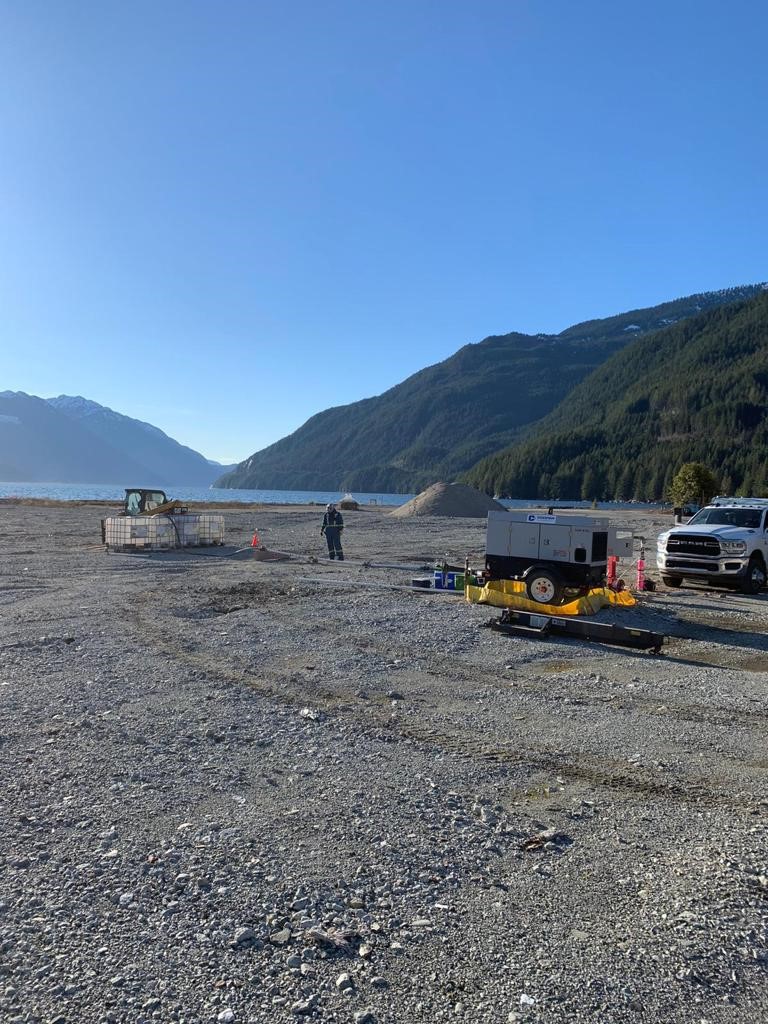Deep well Dewatering project
In this case, the project was to assist with groundwater flow data for future industrial development. This valuable groundwater data will form an integral part of the project’s groundwater management strategy. The dewatering program, as well as potential water treatment and disposal plan as well. The NCS engineering team was also on-site to advise the EPC team on the dewatering and water treatment options. These projects typically have an investigative phase, a design phase based on the data gathered and an operational phase. NCS Fluid Handling Systems team supports all phases from the onset to construction.
NCS Professionals are experienced experts in reading geological reports & interpreting hydrology. This knowledge provides our clients with a calculated subsurface water management plan.
On this project, it was determined that a combination of deep wells and wellpoints would best serve the project. This provided ease of access during construction. As well as the best water treatment option for ground constituents that may exceed the discharge criteria set up. It determined that Total suspended solids (TSS) was not to be an issue when using the NCS wellpoint dewatering methodology. NCS designers used the flow data to calculate the optimum area to put the dewatering systems. This is know as the “area of influence” AKA “Radius of Influence”.
In some areas of this large construction site, the flow data and depth of excavations determined that well point dewatering may not be optimal. NCS Fluid Systems engineers also recommended the use of deep well submersible pumps to assist the dewatering. Deep well dewatering was the option that NCS offered for this application. The site has tight construction space limitations or excavations deeper than the effective capability of vacuum-type well-points. NCS dewatering designers calculated the optimum “area of influence” or “radius of Influence”. Then recommended the placement of multiple pumping wells in an effective configuration with properly sized deep well submersible pumps.
The use of Well Point Dewatering and Deep wells enable excavations to be made safer for entry. Excavation are effective for applications such as excavations for pipelines, foundations, basements and HDD Bore pits. Just like Wellpoint dewatering, Deep-well dewatering will assist in stabilizing the slope of an excavation and allow proper compaction of backfill for underground utilities. The most common form of deep well pumping is by electric submersible pumps. Submersible pumps are lowered inside a screen water flow is unobstructed. Proper number of wells and the depth of the wells in specific hydrogeological conditions allow large drawdowns to be achieved, . It is essential to create the proper cone of depression. This is achieved with several wells drilled in accordance with the engineered dewatering plan. In combination these pumps work together and create a hydraulic gradient drawing down ground water across all the wells.
NCS Fluid Handling Systems has one of the largest fleets of well point dewatering equipment in the Canada with over 73 specialty dewatering pumps. 7 hydraulic drive auguring systems. Numerous water jet systems, a massive number of points and header located strategically across all 8 of our branch locations across Canada. In the past 36 months, NCS Fluid Handling Systems has invested in a large variety of deep-well dewatering pumps.
To understand the best system for you, call Canada’s 1st Engineering design center specializing in dewatering, water treatment and training. We are extremely proud of the NCS Fluid Handling Systems Innovation & Design center in Langley BC. Also call at 236 464 3744 or 1-888-618-7867 and arrange a “Ahead of the Curve” technical exchange interaction.
Just like no one pump fits all situations, not every dewatering solution is the same. The best overall solution for your project success starts with the team at NCS Fluid Handling Systems.

